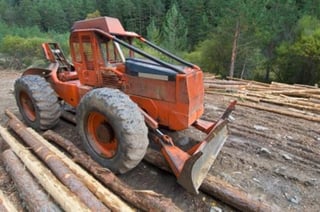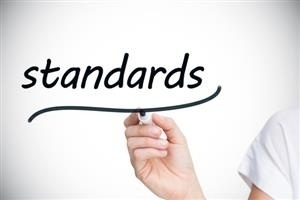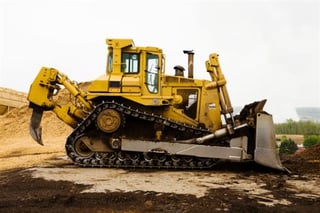
Your equipment is a big part of your business assets. But do you know what that machinery is really worth? Many companies rely too strongly on physical depreciation tables that take the age of the equipment into account, but not the market conditions or the condition of the equipment itself. Is that old table saw really not worth anything, or does it have value that can help you with negotiations down the road? Here's a quick look at what physical depreciation is and how to determine your equipment's real value.
Discover your equipment's real value beyond physical depreciation
Let's imagine a situation. A partnership is breaking up, and it's becoming rather messy. One partner is staying with the business and wants all the fully depreciated equipment to stay with the company. In his mind, it has no value on paper, so it shouldn't be an issue to hang onto it. The other partner who is leaving is demanding that his interest in the equipment be paid off, because the equipment is still used on a daily basis to produce income for the business. Therefore, the equipment does have value.
The next person involved in the dispute is the bookkeeper or accountant, who shows that the machinery has been fully depreciated and no longer has value as an asset to the company. But by definition, this means that the equipment should no longer be functioning effectively. Who is right and who is wrong in determining value?
When a physical depreciation is used, most commonly with income taxes, there is a strong expectation that the equipment will last a set period of time. It could be two years, five years or a decade. On average, that equipment will need to be replaced at the end of the depreciation period, therefore the equipment's value drops following a table as time passes.
But if the equipment is being maintained well, not abused or pushed to the end of its rated capacity, it can last much longer. Almost every business has a piece of equipment bumping around that is absolutely ancient, but it still performs very well. If the books show that this equipment has no value, how can you make a claim when it's destroyed in a fire or stolen? Two words: equipment appraisal.
An equipment appraisal looks at so much more than a simple depreciation table for taxes. The appraiser will take a solid look at the machinery, noting its condition, brand, model and any packages, kits or after-market add-ons that may boost its value. They will also look at how well the mechanical systems work, whether it consistently produces high-quality results and if it is in need of repairs or maintenance. Any abuse or damage will be noted, as well as wear that may shorten the equipments estimated remaining useful life. Finally, they'll look at the market conditions and determine whether demand will raise the value of the equipment.
When you take the time to have an equipment appraisal performed, you have proof of your equipment's value for insurance, tax, financial and legal purposes. However, to have that proof hold up in those circles, you'll want to make sure the appraisal is performed by a certified equipment appraiser. The certification process provides the appraiser with the appropriate methodologies to calculate equipment value that have been tested in a wide range of circumstances and hold up well for these purposes.




